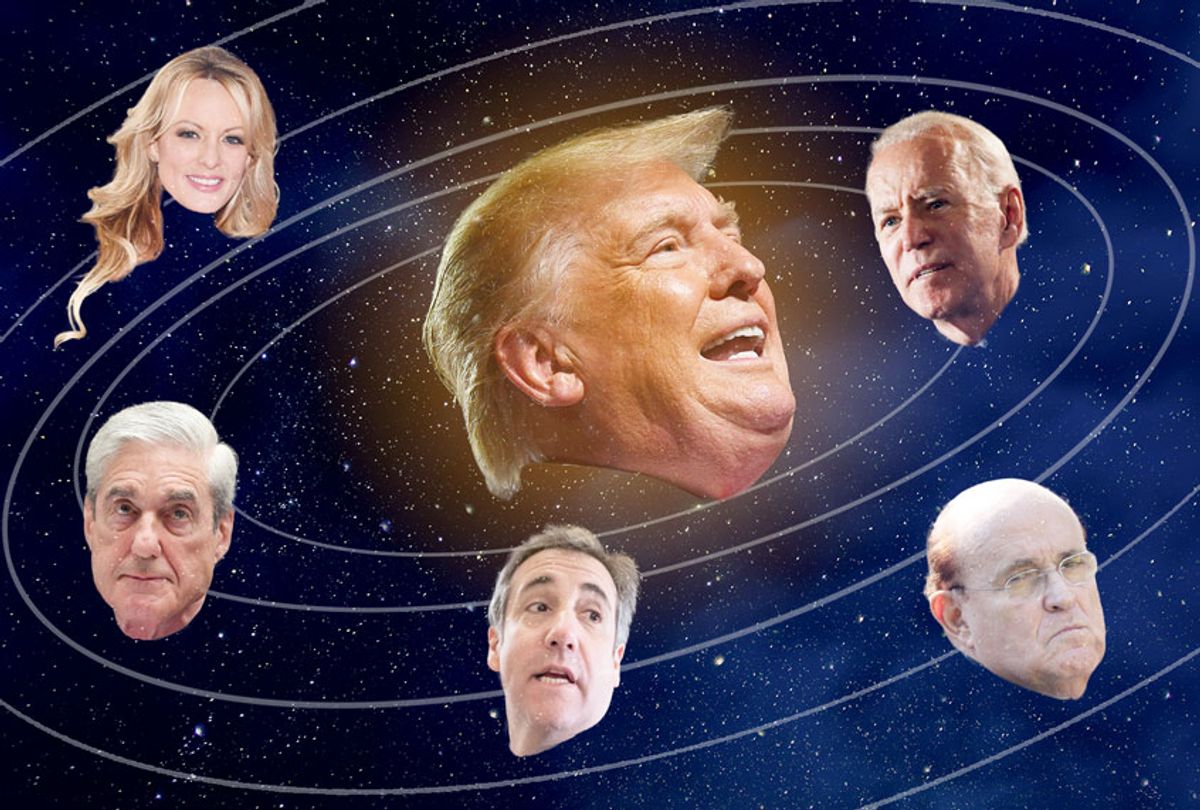Donald Trump may have initially become more widely known for his co-written 1987 "The Art of the Deal" autobiography.
From Art of the Deal to Art of Undermining
But it is his 2020 sequel "The Art of Undermining: How to Upend the United States from the Oval Office" that will secure his fame. In the annals of history, he can lay claim to the title of being America's most corrupt President.
Despite some vigorous efforts to tackle his many abuses of the law, Mr. Trump is unlikely to be brought down by his increasingly outrageous abuses of his office.
This includes the July 9 Supreme Court ruling that he is not above the law, as he and his lawyers had preposterously claimed.
Protecting himself and his friends
From his inauguration as President in January 2017 to this day a paramount priority for Donald Trump has been the relentless pursuit of a never-ending series of manipulations of the law to serve himself and his friends.
On Friday evening, for example, Trump announced that his old friend and political advisor, Roger Stone, is a free man. Trump commuted Stone's 40-month prison sentence — he was due to go to jail on July 14.
Making the Justice Department a political agency
Stone had been found guilty by a jury of multiple crimes related to the 2016 presidential election campaign.
The U.S. Justice Department, long an institution with a rather stellar track record and reputation, first announced it would go for a 7 to 10-year prison sentence. But then, U.S. Attorney-General William Barr intervened and called for a much lower sentence, which he was given.
One wonders: Was there a deal in place — with Trump vowing to Stone that he would never let him go to jail provided that Stone in return lied about Trump's knowledge of Wikileaks disclosures about Hilary Clinton's e-mails? We will never know.
Barr's interventions
Nobody is as willing to be the hatchet-man for Trump as William Barr. In a most brazen departure from old customs, Barr has always acted as the President's personal lawyer, thus making a mockery of his official job title of Attorney General of the United States serving all the people.
At the end of his career, 'Loyal' Bill Barr has obviously opted for shredding a once solid reputation to ensure, at least, that he makes it into the history books.
Out of that corner, he has been fighting intensely — and preposterously — to assist Donald Trump in his multiple personal fights to prevent the U.S. Congress, U.S. prosecutors and the U.S. public from seeing his personal tax returns.
A win against Trump?
It was Barr's Justice Department that claimed that Cyrus Vance, Jr., the public prosecutor for the Manhattan, New York area, could not investigate Trump's finances because the President is immune from all investigations.
That was a ludicrous assertion and all the justices on the Supreme Court agreed with Chief Justice John Robert's statement in the opinion that:
Two hundred years ago, a great jurist of our Court established that no citizen, not even the President, is categorically above the common duty to produce evidence when called upon in a criminal proceeding. We reaffirm that principle today and hold that the President is neither absolutely immune from state criminal subpoenas seeking his private papers nor entitled to a heightened standard of need.
Winning yet more delays
However, the Supreme Court also crucially said Trump could go back to lower courts in New York to fight his case. It thereby opened the way for the President to seek further delays.
More specifically, in another ruling on July 9, the Supreme Court agreed with Barr's Justice Department that the Congress could not get the multitude of financial documents about Trump that it is seeking.
The Court asserted that the demands made by Congress were too wide-ranging, but it indicated that it is legitimate for Congress to seek specific documents from the President, notably those such as his private financial details that are not subject to Executive Privilege.
It will take months before Congress can move effectively, so Trump has won delays here too.
Filling, not draining the swamp
Beyond these cases which made national and international headlines, a vast number of legal actions against Trump and his family are now moving through various U.S. courts. So is a plethora of charges for conflict-of-interest and ethics violations.
In another era just one or two of the cases would have been sufficient to do enormous damage to a President of the United States. But in the Trump era, the scandals come so frequently and fast that nothing seems to stick.
That is part of Mr. Trump's method. He counts on nobody being able to keep up with all his violations of the law.
"…the swamp drainers"
Away from the "big" headlines, what has been especially troublesome for the institutional set-up of the United States has been the way in which Donald Trump has extended his sense of personal fiefdom management to the offices of U.S. Inspectors Generals (IGs).
These are an important, but much overlooked institution to ensure institutional cleanliness. Especially in a country with such vast bureaucracy and such vast financial powers (and hence potential for abuse), they are important gatekeepers.
Republican Senator Chuck Grassley from Iowa is seething that the 1978 law from the post-Watergate era that established the offices of Inspectors General (IGs) is being ruthlessly undermined by Trump.
Grassley has been the IGs' champion in the U.S. Senate for many years and now wants to strengthen existing laws to restore the independence of the IGs. He notes that the IGs were meant to be the "original swamp drainers."
A crucial cleansing brigade
Senator Grassley explains that, under the 1978 law, the IGs were authorized to conduct audits and investigations; promote efficiency and deter fraud and abuse; and keep agency heads and Congress "fully informed" about the problems IGs find.
Today, there are 75 IG positions across the federal government and their actions have uncovered waste and fraud on a vast scale over the years — saving the government over $20 billion in the first six months of 2020 alone, says Grassley.
IG's are essential for the transparency and accountability of government, but what is the current practice? Are Americans, via the processes that see IGs report independently to Congress, still assured that investigations of fraud and abuse in the federal government will be pursued?
Neutering the inspectors
The following sample clearly says not so:
President Trump announced in late March that he would replace Christi Grimm, the senior Inspector-General at the Department of Health and Human Services, after she reported failings in the government's response to the crisis.
Michael Atkinson, the Inspector-General for the National Intelligence Agency, was removed late on Friday, April 4, for having failed to prevent Congress from receiving the whistle-blower complaint about Trump's Ukraine extortion that led to the House of Representatives impeaching the President.
A few days later, on April 7, Trump ousted Glenn Fine, as the special IG in charge of a panel of IGs to oversee the disbursements of large amounts of the $2.2 trillion Cares Act relief program. Trump clearly did not believe that Fine would be sufficiently loyal to Trump and his friends.
Meanwhile, public documents show that many corporations run by the President's friends, as well as one owned by the family of his son-in-law Jared Kushner, received loans and grants from the U.S. Treasury and Small Business Administration as a result of the relief program.
And then, Steve Linick, the Inspector-General at the State Department, was fired on Friday evening, May 15, and while no official reason was given, he was investigating the ways that Secretary of State Pompeo, at the urging of the Raytheon arms company, circumvented Congressional processes to rush ahead with a major sale of weapons to Saudi Arabia.
Conclusion
The Government Ethics Office is a wasteland, the office of Inspector-General has been neutered and the U.S. Justice Department has become the President's personal law firm.
Donald Trump's 2016 campaign vow to "drain the swamp" is a farce. A sign of his arrogance and the weaknesses in the institutional set-up of the United States, Mr. Trump has made a mockery of anti-corruption efforts. In this time of COVID 19, he seems to be getting away with his abuses.


Shares